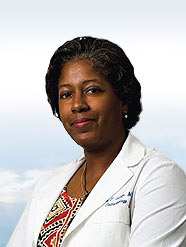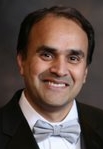Feature Articles
Why Are We Ignoring The Role Of The Food Industry In Healthcare Reform?
 The epidemic rise in the number of Americans young and old who are either overweight or obese account for 67% according to the NationalCenter for Health Statistics. The number of obese people has more than doubled since 1980. When you take into account the number of diseases like breast cancer, heart disease, diabetes and osteoarthritis to name a few that are linked to obesity it doesn’t take a genius to figure out that the link between healthcare costs and obesity is strong, and changes can go a long way to both bringing down the costs and helping us live longer healthier lives.
The epidemic rise in the number of Americans young and old who are either overweight or obese account for 67% according to the NationalCenter for Health Statistics. The number of obese people has more than doubled since 1980. When you take into account the number of diseases like breast cancer, heart disease, diabetes and osteoarthritis to name a few that are linked to obesity it doesn’t take a genius to figure out that the link between healthcare costs and obesity is strong, and changes can go a long way to both bringing down the costs and helping us live longer healthier lives.
Rethink Data, Transform Healthcare - Unlocking The Value Of Health Data
 We are all consumers of healthcare and therefore have a vested interest in its future. As an observation, being an outsider to this sector, the healthcare global system looks increasingly broken as the rate of change and complexity increases. At the same time, my empathy is with those people working inside the profession that provide high quality, compassionate healthcare, and support. But maybe more help is needed to handle the relentless challenges and changes at the edge. Read More »
We are all consumers of healthcare and therefore have a vested interest in its future. As an observation, being an outsider to this sector, the healthcare global system looks increasingly broken as the rate of change and complexity increases. At the same time, my empathy is with those people working inside the profession that provide high quality, compassionate healthcare, and support. But maybe more help is needed to handle the relentless challenges and changes at the edge. Read More »
How Medical Device Manufacturers Inject Copyright Into Treatments
 Arguments for proprietary data hoarding have been aired in the computer movement for decades, and have been decisively overturned by open source advocates and security experts. The real question is why any patient should be denied access to data that can improve his quality of life and chances of survival. In an age where "patient activation" and "Quantified Self" are buzzwords uttered throughout the medical industry, it is inconceivable that it could tolerate the present situation.
Arguments for proprietary data hoarding have been aired in the computer movement for decades, and have been decisively overturned by open source advocates and security experts. The real question is why any patient should be denied access to data that can improve his quality of life and chances of survival. In an age where "patient activation" and "Quantified Self" are buzzwords uttered throughout the medical industry, it is inconceivable that it could tolerate the present situation.
Can Providers Continue the Healthcare Continuum Without Medical Apps?
 Healthcare applications face different challenges than their counterpart in consumer applications. They are not designed to replace providers or to improve the efficiency and scalability of providers. EMR and EHR systems have common characteristics with a database system, but they are designed for healthcare. In other words, healthcare needs its own stack. Healthcare middleware must address all the common services required to support application development. Having a set of APIs access EMR and EHR systems is the starting point, but not the complete solution. Messaging, workflow, rule engine services, and more must be part of a middleware solution. Its footprint must be lightweight and cost efficient so that it can be embedded with the applications. The real healthcare challenge is addressing the missing healthcare applications in support of a diverse care environment. Our efforts must align to inspire developers in addressing providers’ needs. It will be healthcare applications that will evolve healthcare to the next level.
Healthcare applications face different challenges than their counterpart in consumer applications. They are not designed to replace providers or to improve the efficiency and scalability of providers. EMR and EHR systems have common characteristics with a database system, but they are designed for healthcare. In other words, healthcare needs its own stack. Healthcare middleware must address all the common services required to support application development. Having a set of APIs access EMR and EHR systems is the starting point, but not the complete solution. Messaging, workflow, rule engine services, and more must be part of a middleware solution. Its footprint must be lightweight and cost efficient so that it can be embedded with the applications. The real healthcare challenge is addressing the missing healthcare applications in support of a diverse care environment. Our efforts must align to inspire developers in addressing providers’ needs. It will be healthcare applications that will evolve healthcare to the next level.
Why Don't we Value Open Source Software Assets?
 Developers and software providers love open source software (OSS) for its capability, maturity, accessibility and transparency. So why isn't there more promotion of the use of open source software and why do procurement professionals find it so difficult to grasp the value of open source software? One of the key reasons may lie in the genuine lack of clarity that surrounds the accounting of open source software, which has zero license cost. The ubiquitous use of open source throughout the technology sector coupled with the lack of accounting policy clarity surrounding the acts of creating and open source software, is undervaluing the assets of software intensive sectors like finance and healthcare and of large institutions like the National Health Service (NHS).
Developers and software providers love open source software (OSS) for its capability, maturity, accessibility and transparency. So why isn't there more promotion of the use of open source software and why do procurement professionals find it so difficult to grasp the value of open source software? One of the key reasons may lie in the genuine lack of clarity that surrounds the accounting of open source software, which has zero license cost. The ubiquitous use of open source throughout the technology sector coupled with the lack of accounting policy clarity surrounding the acts of creating and open source software, is undervaluing the assets of software intensive sectors like finance and healthcare and of large institutions like the National Health Service (NHS).
Zoeticx Challenges Lack of Interoperability with Open Middleware Technology
 Zoeticx software bridges the gap between medical data and quality patient care. The company offers software solutions for the healthcare industry which are dedicated to Improving Patient Outcomes®, enhancing the quality of care, containing costs, and simplifying administration. These solutions offer an immediate increase in the quality of care by delivering the right information to the right caregiver at the right time, in a manner that can be easily understood. In making an impact on a new healthcare landscape ushered in by Obamacare and the medical industry itself, Zoeticx champions new paradigms through innovation with a patient-centric approach. Its solutions are unique to their ability to address these problems. Read More »
Zoeticx software bridges the gap between medical data and quality patient care. The company offers software solutions for the healthcare industry which are dedicated to Improving Patient Outcomes®, enhancing the quality of care, containing costs, and simplifying administration. These solutions offer an immediate increase in the quality of care by delivering the right information to the right caregiver at the right time, in a manner that can be easily understood. In making an impact on a new healthcare landscape ushered in by Obamacare and the medical industry itself, Zoeticx champions new paradigms through innovation with a patient-centric approach. Its solutions are unique to their ability to address these problems. Read More »
6 Ways Physicians can Free Patient Records
 A certain doctor's practice had been using EHR software for many years; they had been paying a pretty penny too. For their own reasons they wanted to change their software. They were going to brave the uncertain and scary world of transitioning their current EHR to another one. A round of applause for that decision alone, for many practices tolerate their EHR system only because they have paid a lot of money for it and have spent a lot of time training on it. They just don’t want to go through the pain all over again. This works out in favor of most EHR system vendors, doesn't it? Make the process so painful and costly that the physicians would not want to go through it again, thereby locking the caregivers into an eternal commitment.
A certain doctor's practice had been using EHR software for many years; they had been paying a pretty penny too. For their own reasons they wanted to change their software. They were going to brave the uncertain and scary world of transitioning their current EHR to another one. A round of applause for that decision alone, for many practices tolerate their EHR system only because they have paid a lot of money for it and have spent a lot of time training on it. They just don’t want to go through the pain all over again. This works out in favor of most EHR system vendors, doesn't it? Make the process so painful and costly that the physicians would not want to go through it again, thereby locking the caregivers into an eternal commitment.
Why do EHR Firms Own Patient Data When Other Software Vendors Don't?
 There's a healthy debate going on about healthcare data interoperability and I think the more we discuss it, the better off we'll be. It's absolutely crucial that all healthcare information systems be able to talk to each other in a way that is useful to both physicians/clinicians as well as patients. The only way to have truly interoperable systems is to have free (but safe and secure) data interchange and exchange requires access rights and an understanding of ownership rules. One part of the discussion that many vendors of electronic health records (EHRs), a large portion of the health IT ecosystem, don't want to have is about the ownership of patient data stored in "their" EHR systems.
There's a healthy debate going on about healthcare data interoperability and I think the more we discuss it, the better off we'll be. It's absolutely crucial that all healthcare information systems be able to talk to each other in a way that is useful to both physicians/clinicians as well as patients. The only way to have truly interoperable systems is to have free (but safe and secure) data interchange and exchange requires access rights and an understanding of ownership rules. One part of the discussion that many vendors of electronic health records (EHRs), a large portion of the health IT ecosystem, don't want to have is about the ownership of patient data stored in "their" EHR systems.
Is an Open Source EMR (OpenEMR) the Right Choice for Medical Practices?
 Being the lead developer of OpenEMR, the world’s most widely deployed open source electronic medical record (EMR) system, I field calls on a daily basis from people who want to implement it. As part of the due diligence to discover and deliver the best possible outcome for the client, we give them a set of different implementation options that they can consider. The options range from a basic OpenEMR implementation at their offices, to a far more advanced and feature-packed “cloud” solution called BlueEHS.
Being the lead developer of OpenEMR, the world’s most widely deployed open source electronic medical record (EMR) system, I field calls on a daily basis from people who want to implement it. As part of the due diligence to discover and deliver the best possible outcome for the client, we give them a set of different implementation options that they can consider. The options range from a basic OpenEMR implementation at their offices, to a far more advanced and feature-packed “cloud” solution called BlueEHS.
What Are the Real Consequences of ObamaCare?
If America has anything, it’s a disease care system that focuses on episodic interventions by health care professionals trying to salvage a patient from the ravages of chronic diseases, many of which are self-induced. It’s a system that does not focus on health maintenance, something that really would alter the nature of the country’s well-being. I would argue that using the same money we are spending on this ObamaCare nonsense to teach kids in elementary school how to eat, shop, cook, exercise, not use drugs or tobacco and to have safe sex would probably improve health in the country far more than this bill ever did or will.
Tolven-The “Unified Platform” that Delivers All-in-One EHR/PHR/HIE
It is hard to miss the fact that the healthcare industry in the United States and other countries are finding that their existing health IT solutions are not interoperable and are simply unable to distribute, or even acquire, critical patient information. There are two fundamental approaches to fixing this problem. First try to bolt on capabilities that will create kludge systems that have partial interoperability capabilities, or start from scratch with a fully unified platform that has all the interoperability capabilities built-in from the ground up. That would be the Tolven Platform, and that is what this article examines. Read More »
VetAdvisor Deploys SugarCRM to Create a World-Class Veteran Relationship Management Platform
VetAdvisor, the nation’s expert in veteran-centric holistic care, has rapidly expanded its reach to military veterans through its recent deployment of the SugarCRM customer relationship management (CRM) platform. Leveraging SugarCRM’s advanced open source CRM platform, VetAdvisor is able to provide proactive coaching services across behavioral health, wellness, financial, and all aspects of transition and career development.
Is Open Source Tolven the "Dark Horse" of Health IT Platforms?
Is there perhaps a “dark horse” in the EHR field, just poised to challenge the overhyped, slow, clumsy, and expensive leaders of the EHR heat? All the troubles with lack of interoperability and usability of proprietary EHRs have suddenly put the spotlight on what may be the EHR dark horse, the open source Tolven Platform.
Composable Software, Collaborative Development, and the CareWeb Framework
The CareWeb Framework (CWF) enables the software developer to build complex, richly interactive, web-based applications in a modular fashion...The CWF has been used as the basis for a complete EHR and CPOE system and has been ported to several open source EHRs, including OpenMRS, VistA, and RPMS. The CWF is open source software built upon open source software. Read More »
Integrating EHRs to Clinical Research EDC Systems
It has been a longstanding challenge to integrate patient data from EMRs (Electronic Medical Record systems) with EDC (Electronic Data Capture) systems for clinical studies and trials...These hurdles have been so high that the task has rarely been attempted in earnest, let alone accomplished in any significant way. That is until recently. How are these challenges being overcome today? What changes have allowed this integration to be to considered and implement today? The answer is: lots!